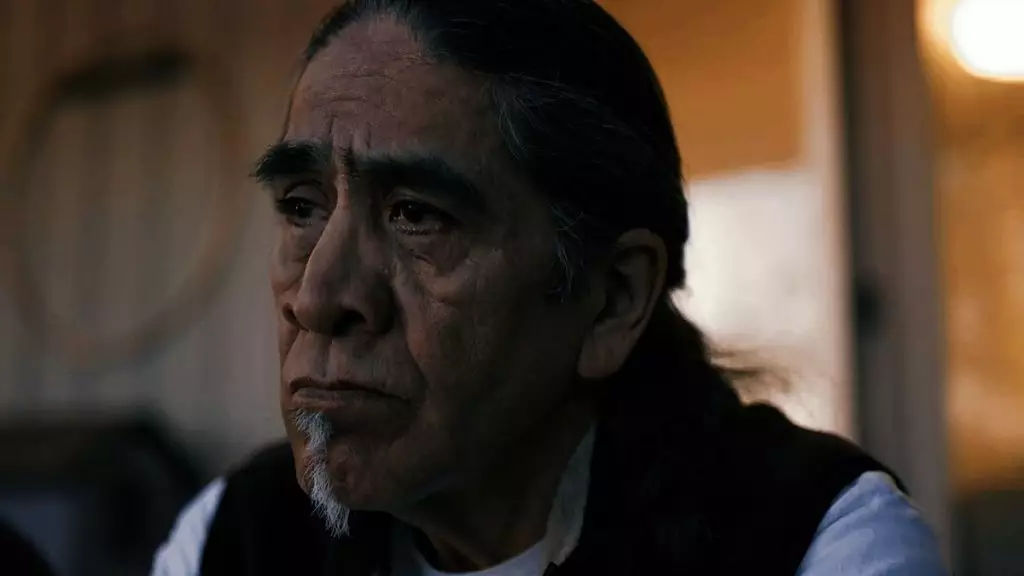Filmmakers Julian Brave NoiseCat and Emily Kassie have created a thought-provoking and poignant film that delves into the deep-rooted trauma experienced by the Williams Lake First Nations people due to the residential school system. Their documentary, titled “Sugarcane,” sparks important questions about morality, justice, and the devastating consequences of forced family separation, physical and sexual abuse, and the destruction of First Nation culture and language. Drawing on their backgrounds in activism and journalism, NoiseCat and Kassie skillfully weave together multiple narratives to bring attention to this heartbreaking issue.
NoiseCat and Kassie’s film stands out for its unwavering empathy towards the affected First Nation communities in North America. Through their storytelling, they demonstrate a deep respect for the survivors and their descendants, highlighting their resilience and determination to uncover buried truths. By approaching the subject matter with humanity and compassion, “Sugarcane” urges viewers to reflect on their own humanity and recognize the importance of compassion towards others.
Saint Joseph Mission residential school, located in Williams Lake, British Columbia, represents one of 139 similar institutions established to assimilate Indigenous children into Euro-Canadian culture. Like many other schools in Canada, Saint Joseph aimed to erase the traditional languages, cultural practices, and identities of First Nation youth by physically separating them from their communities. Former students of these residential schools have reported widespread physical, emotional, and sexual abuse, as well as permanent detachment from their families and the devastating loss of their culture.
Although Saint Joseph Mission is a stark example of the residential school system in Canada, it is important to acknowledge that similar institutions existed in the United States. American Indian boarding schools, such as the Carlisle Indian School in Pennsylvania, sought to assimilate Indigenous children into Eurocentric society. These schools implemented harsh discipline, forced manual labor, and prohibited students from speaking their native languages. The enduring trauma experienced by individuals like NoiseCat’s father, who attended such a school, underscores the collective harm caused by forced family separation and rampant physical and sexual abuse.
A Journey Towards Reconciliation
“Sugarcane” sheds light on the ongoing efforts by communities like the Williams Lake First Nation to seek reparations for the harms inflicted upon them by the residential school system. The film captures the activism of individuals like Charlene Belleau, who channels her own experiences into advocating for justice. In parallel, NoiseCat’s father pursues personal healing. Through their visual storytelling, NoiseCat and Kassie demonstrate profound solidarity with the Williams Lake First Nation and their continued struggle to overcome the cultural erasure perpetuated by these schools.
Moving forward, the film emphasizes the importance of striking a delicate balance between proper commemoration and protecting survivors from retraumatization. The ongoing investigations into missing children serve as a testament to the need to bring this grief out from the shadows. NoiseCat and Kassie model a community-centered approach to reconciliation by allowing space for conflicting perspectives within affected bands. The filmmakers’ sensitivity serves as a powerful example for the wider community to listen and support the healing process.
As the documentary unfolds, it becomes evident that the Williams Lake First Nation has not faltered despite the systematic attempts to eradicate their culture. Through their determination and the support of empathetic filmmakers like NoiseCat and Kassie, it is hoped that justice can be achieved for the communities affected by the residential school system. The resilience displayed by these communities stands as a testament to the strength of the human spirit in the face of immense adversity.
Julian Brave NoiseCat and Emily Kassie’s film, “Sugarcane,” is a poignant and powerful exploration of the intergenerational trauma caused by the residential school system. Through their empathetic storytelling, the filmmakers raise important questions about morality and justice, reminding us to respect the humanity in ourselves and in others. By shedding light on the enduring repercussions of these schools, the film serves as a call to action, urging society to confront this painful history and work towards healing and reconciliation.


Leave a Reply